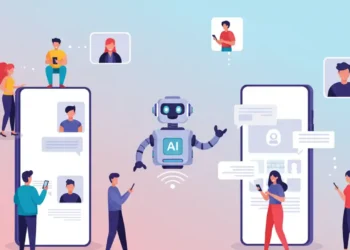Ever felt like your computer is powerful… but somehow still slow at solving complex problems? That’s where quantum computing comes in. It’s not just a tech buzzword it’s a revolutionary idea that might change how we understand computing, problem-solving, and even how we think.
You might feel overwhelmed hearing terms like qubits or superposition, but don’t worry I’ll break it all down in simple language. By the end of this post, you’ll understand what quantum computing really is, how it’s different from the computers we use today, and why big companies and scientists are so excited about it. Let’s get curious together!
Read More: Artificial Intelligence Meaning In Urdu | مصنوعی ذہانت کا اردو میں مطلب
1. What Is Quantum Computing, Really?
Imagine if your computer could try multiple solutions at the same time instead of one by one. That’s the magic of quantum computing. Instead of using bits (0s and 1s), quantum computers use qubits, which can be 0, 1, or both at once kind of like multitasking on steroids.
For example, traditional computers are like checking every key on a locked door one at a time. A quantum computer? It checks all keys at once and finds the right one instantly. Pretty wild, right?
2. Classical Computers vs Quantum Computers
Let’s break it down:
Classical computers = like reading a book word by word
Quantum computers = like understanding the whole page in one glance
Classical computers use binary code: just 1s and 0s. But quantum computers use qubits that work with superposition and entanglement (we’ll explain those soon). That’s why quantum computers can solve complex problems faster than any supercomputer we have today.
3. What Are Qubits? And Why Are They Special?
Qubits are the heart of quantum computing. Unlike normal bits, which are either 0 or 1, a qubit can be both at the same time thanks to superposition. It’s like flipping a coin and having it land as both heads and tails until you actually look at it.
Sounds confusing? Don’t worry. One thing I tried was picturing a spinning globe it can point to many directions, not just north or south. That’s how qubits hold more info.
4. Superposition and Entanglement In Plain English
Superposition lets a qubit exist in multiple states at once, while entanglement connects two qubits so that changing one instantly affects the other no matter how far apart they are.
For example, imagine a pair of magical dice. You roll one, and no matter where the other is in another room or another planet it shows the same result. That’s entanglement!
5. Why Does Quantum Computing Matter?
You might wonder, “Okay, but how does this help me?” Well, quantum computing can help with:
Discovering new medicines
Predicting weather more accurately
Optimizing traffic and deliveries
Securing data with better encryption
It can even help with complex mental health research by analyzing massive data sets faster than ever.

6. How Far Are We from Using Quantum Computers?
Quantum computers aren’t mainstream yet. They’re still in labs or being tested by tech giants like Google, IBM, and Microsoft. But the progress is happening fast. One thing I read recently? Google’s quantum computer solved in minutes what would’ve taken a supercomputer thousands of years.
So while we can’t buy one at the store just yet, it’s not science fiction anymore. It’s more like science soon.
7. Real-Life Applications of Quantum Computing
Think of how AI and machine learning changed our world quantum computing could be even bigger. Some uses being explored include:
Cancer research
Bank fraud detection
Climate modeling
Advanced cybersecurity
These are big, real-world problems that quantum computing might help solve better and faster.
8. Should You Be Worried About Quantum? Or Excited?
Both! Like with all powerful technologies, there are pros and cons. Quantum could crack current encryption systems, which means governments and companies are racing to create quantum-safe security.
But there’s also reason for excitement: it may bring breakthroughs we can’t even imagine yet. Just like the internet once felt mysterious, quantum may one day feel familiar.
9. Is Quantum Computing Connected to Mental Health?
It might sound unrelated, but hear me out quantum computing can analyze complex patterns in brain research, therapy responses, and massive mental health datasets. That means better predictions, faster diagnoses, and more personalized treatment plans.
So yes, it may one day transform mental health care too.
10. Final Thoughts: A Peek into the Future
You might feel overwhelmed by the science-y stuff, and that’s okay. Quantum computing is a complex topic, but at its heart, it’s about solving problems faster and smarter. It’s still early, but the potential is huge and learning a little now puts you ahead of the curve.
Conclusion: The Future Is Closer Than You Think
Quantum computing isn’t just for scientists it’s a peek into the next big leap in technology. Don’t worry if you don’t get it all at once. The key is to stay curious, keep learning, and be open to how these things might impact your life even in ways you can’t imagine yet.
If you’ve made it this far, you’ve already taken a huge step into understanding the future. Keep going you’re smarter than you think!
Enjoyed this post?
Leave a comment below with your thoughts or questions!
FAQs About Quantum Computing
1. What is the simplest way to understand quantum computing?
Think of it like this: normal computers solve one problem at a time. Quantum computers try all possible solutions at once, using something called superposition. It’s like checking every answer instantly instead of step-by-step.
2. Are quantum computers dangerous to cybersecurity?
Not yet. But in the future, they could break today’s encryption. That’s why experts are already working on “quantum-proof” security systems. So it’s more about staying prepared than panicking.
3. Can quantum computing affect my daily life?
Maybe not today, but soon! It could improve health care, traffic systems, online safety, and even entertainment recommendations. Think of it as future tech shaping a better, smarter world.
















Discussion about this post